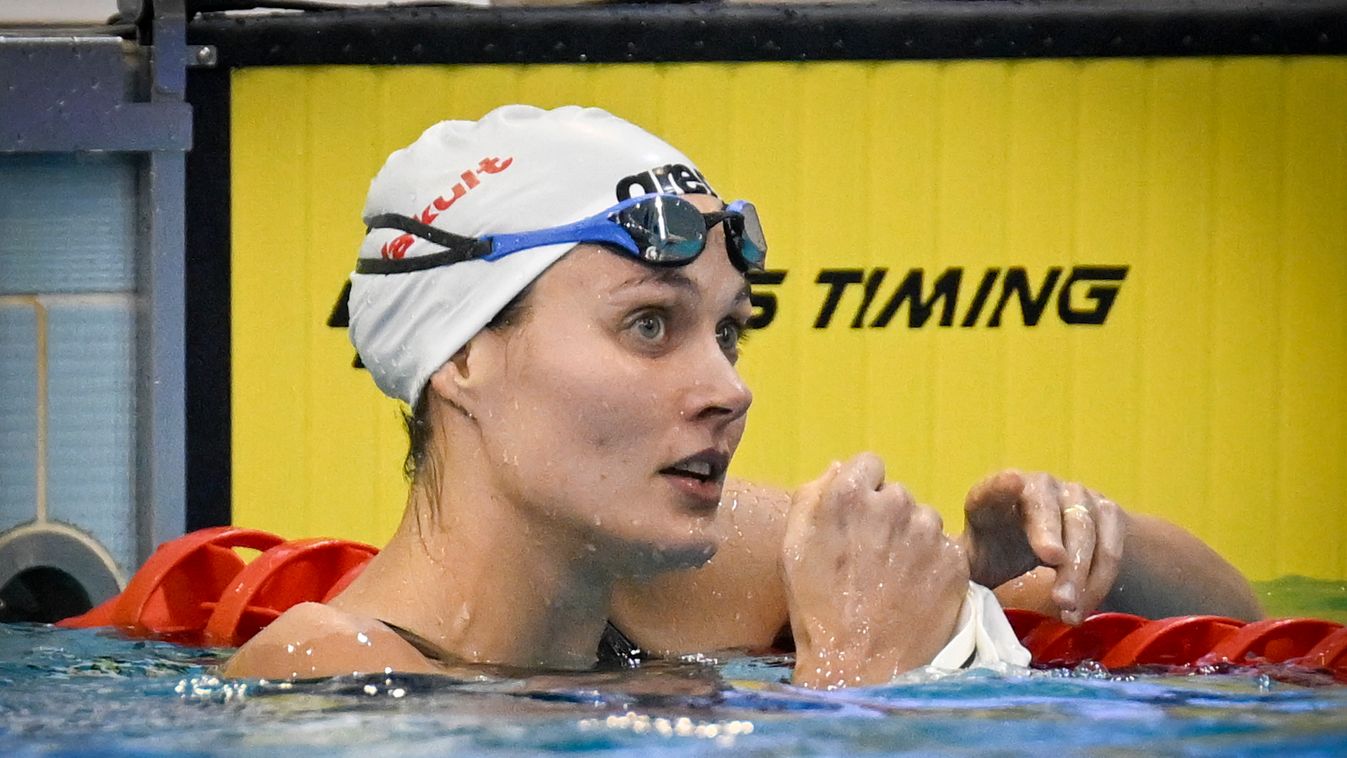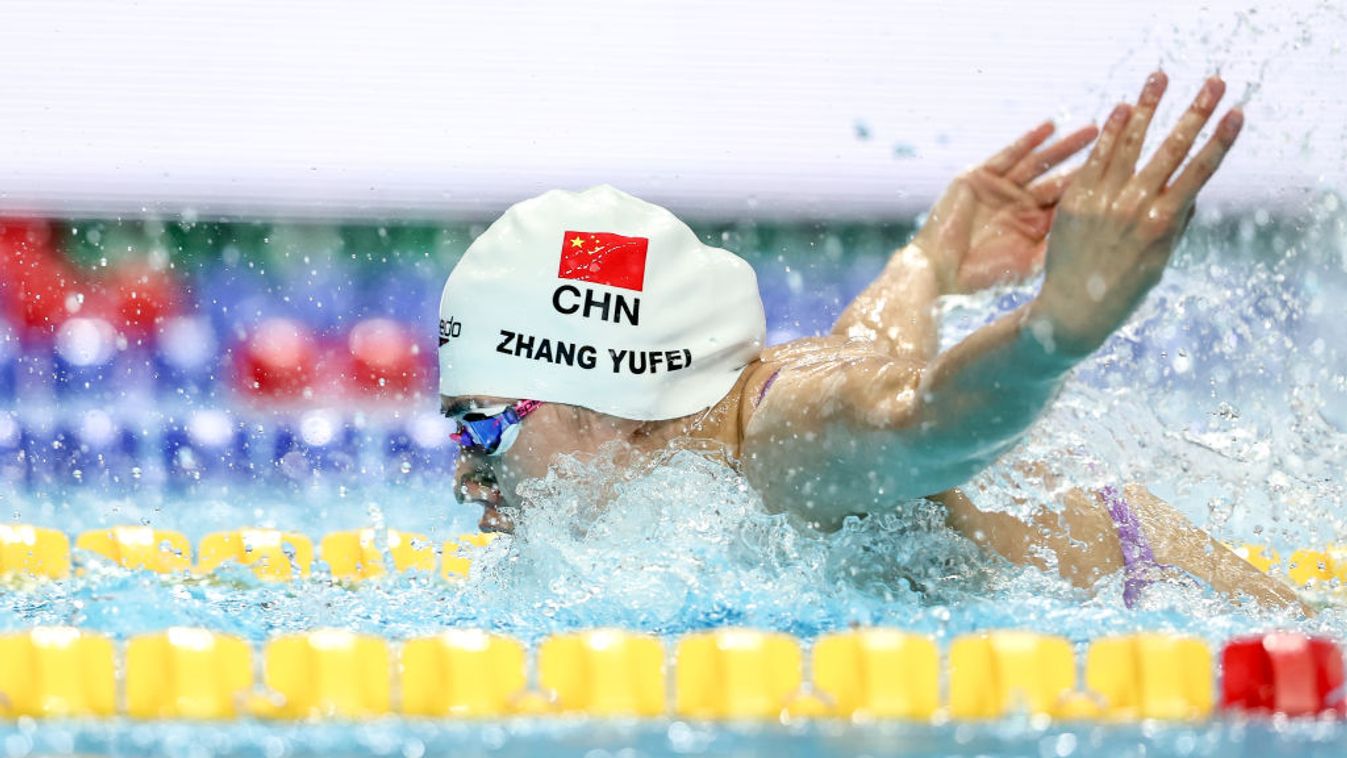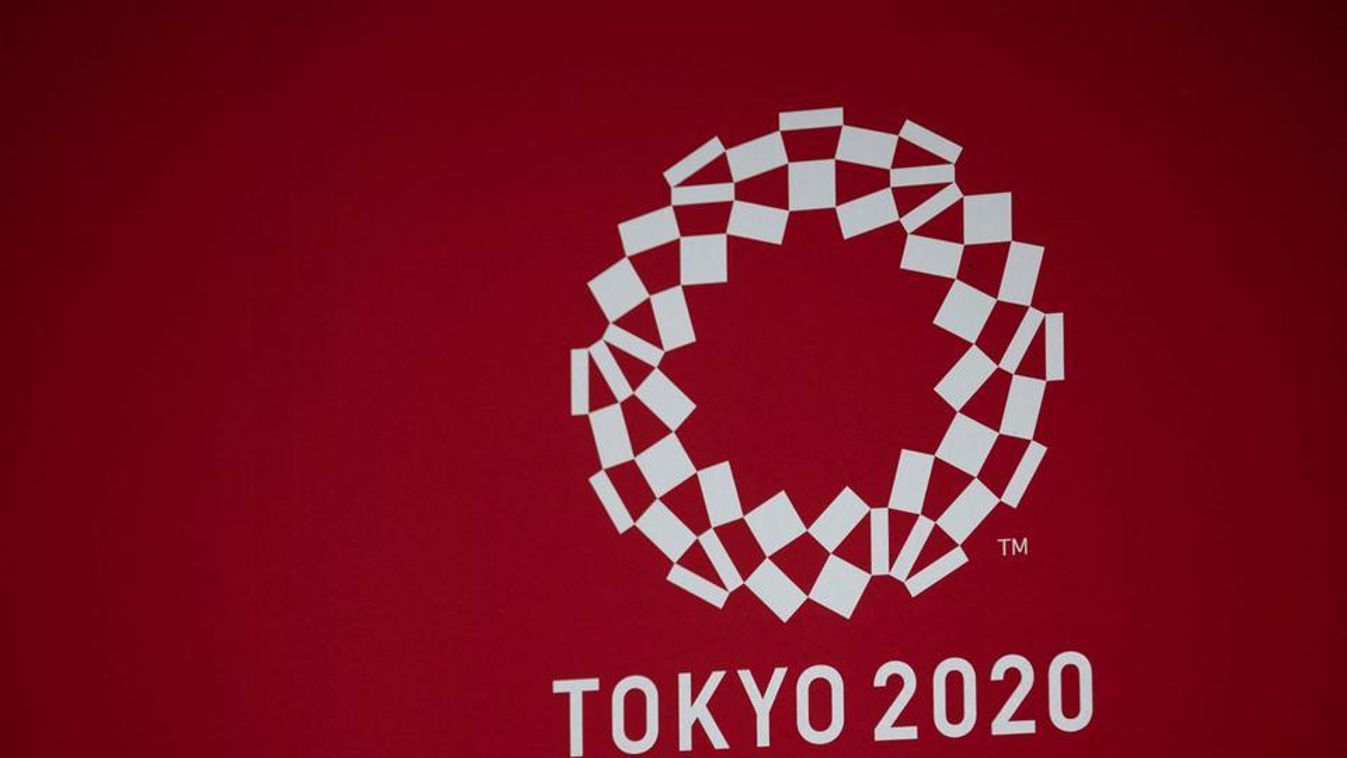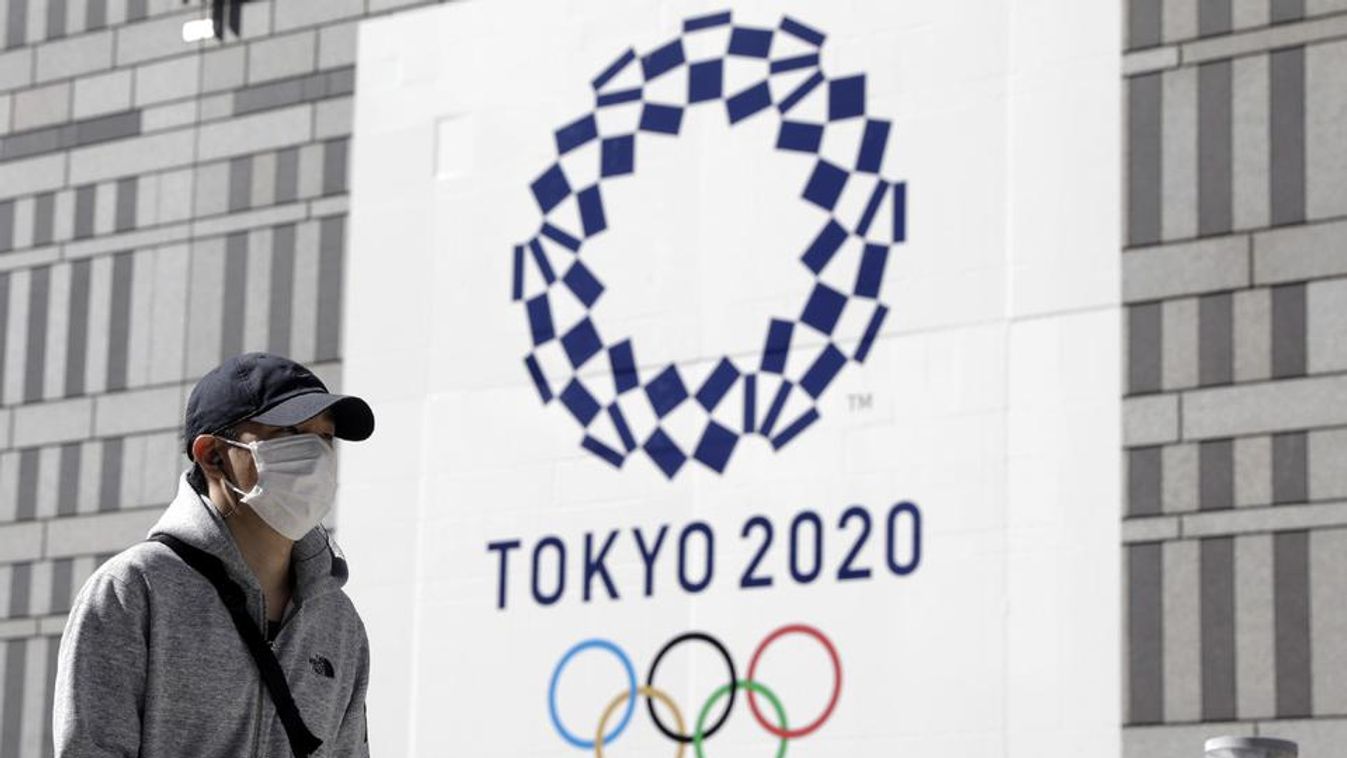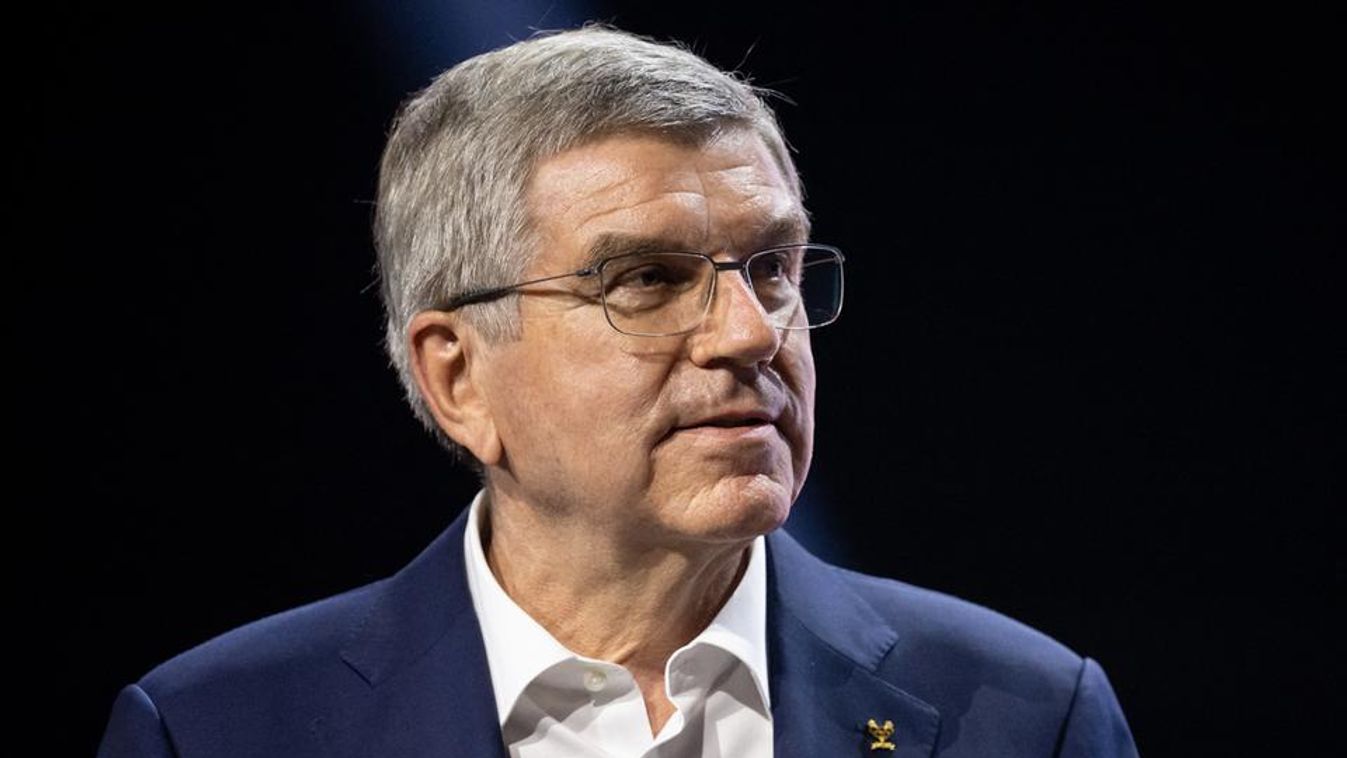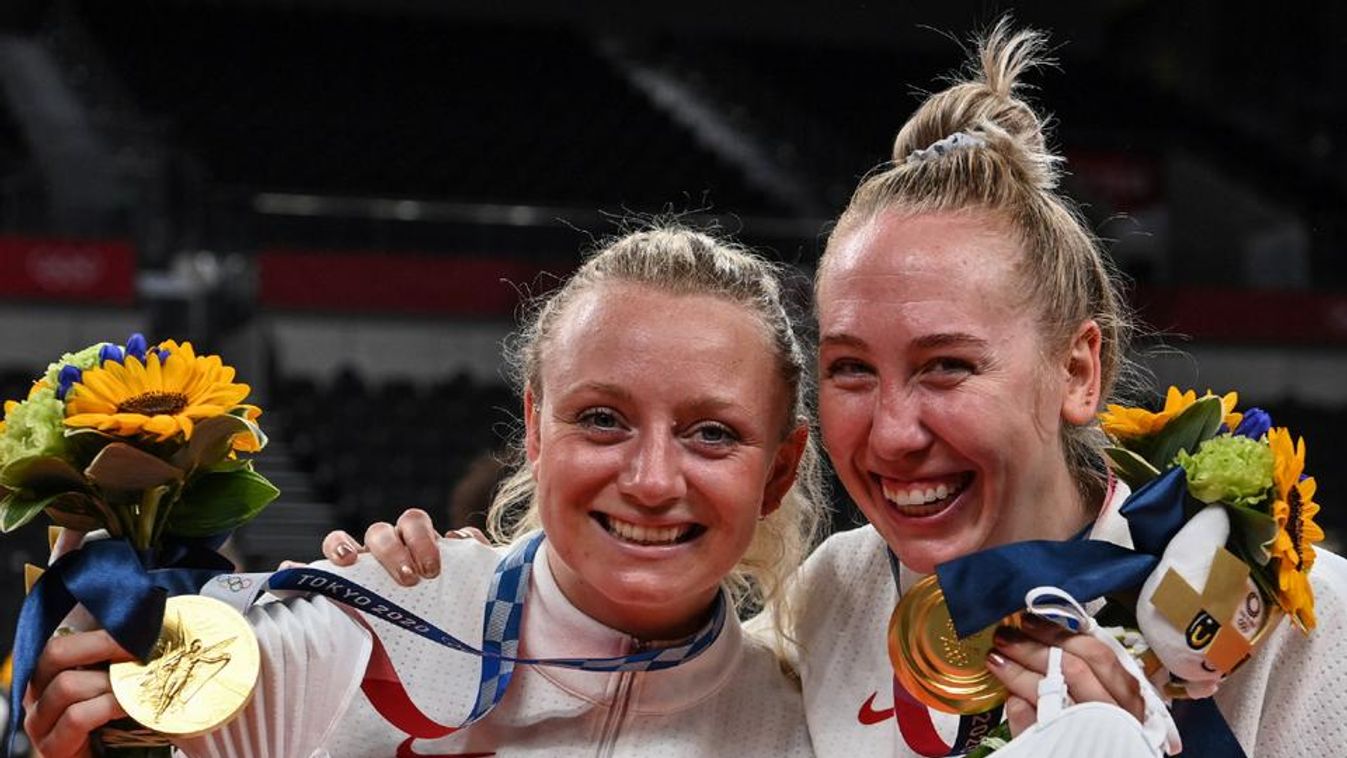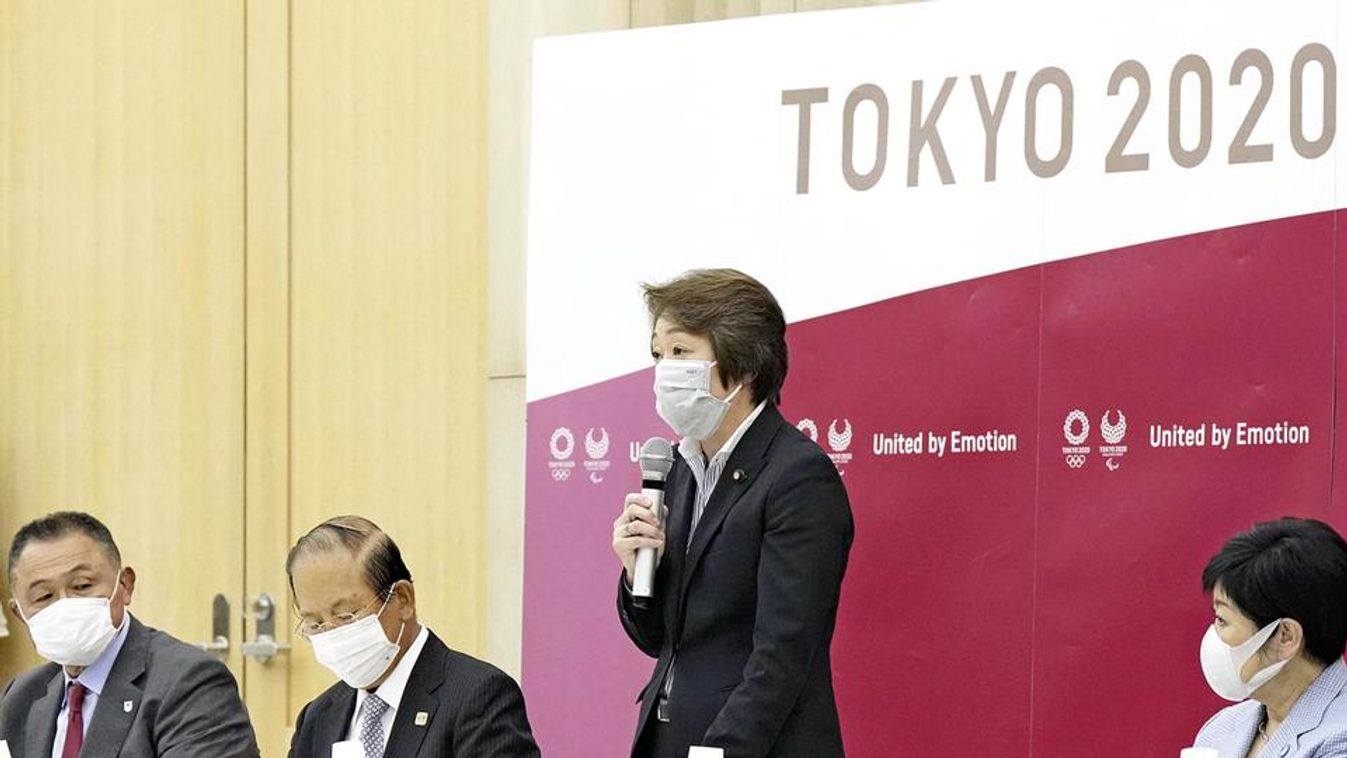There is no doubt that, like the competitors, the Olympics is the pinnacle of the judges' careers. One would hardly think that in some sports, the fate of the best athletes will surely be decided by the best professionals based on strict selection principles. László Fábián, an Olympic medalist in Seoul as a member of the 1988 modern pentathlon team, is the sporting director of the Hungarian Olympic Committee (MOB), and it is such prestige to have a judge representing Hungary.
In Tokyo, the Hungarian officials consisted of 19 members: nine worked as judges and referees, five as technical delegates, and five helped to conclude the events.
"It is a great pleasure that we have had more technical delegates this time than in previous years, and we cannot complain about the number of our judiciary delegation. The MOB considers them members of the team as well, so they provided them some gear," said László Fábián.
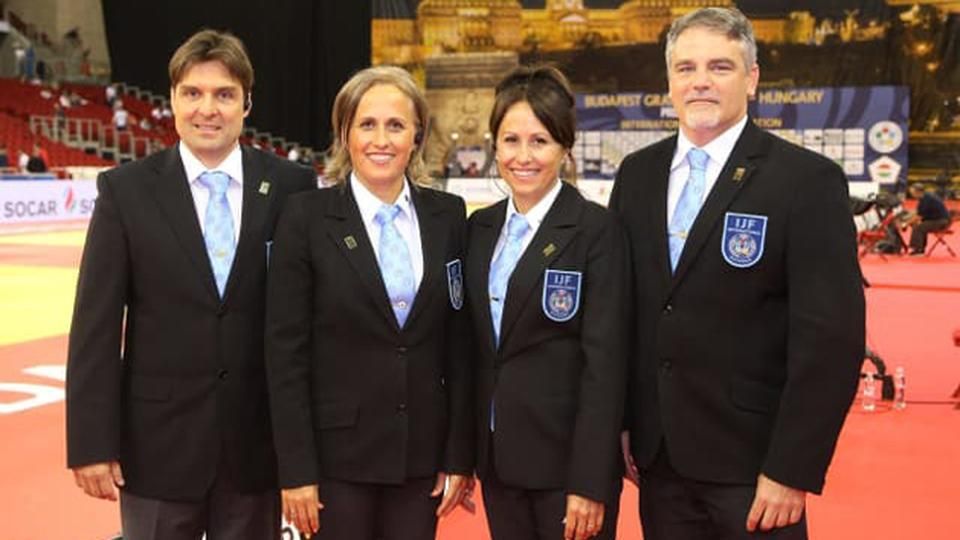
Hundreds of judo judges work on the international stage, but only 14 could be there in the Japanese capital. The professionals were scored in all international competitions in the last two years – in this case three due to the postponement – of the Olympic cycle, and based on their performance, the ranking on which the best could travel was established. |
KEPT IT IN THE FAMILY
Annamária Havasiné Fridrich participated in her second Olympics, and she is the first Hungarian female judge to work in judo at the Games. She worked in Rio de Janeiro in 2016, and she fought to be in Brazil – as the only woman – without any Hungarian referees qualifying for 16 years before her.
We asked her if she would like to be at the 2024 Paris Olympics as well, and for understandable reasons, she replied “no” with a smile on her face.
"I do not want to stand in the way of other Hungarian judges," explains Annamária Havasiné Fridrich. "Besides me, my twin sister Katalin Fridrich, her husband Balázs Gosztonyi, and my husband Viktor Havasi are the best referrers in Hungary. You can imagine what we talk about at a family reunion... By the way, for a long time, I thought that Balázs would get there this time because he was a few tenths of a point ahead of me, but the tables have turned. I really hope that he will go to Paris!"
Of course, even from a sports diplomacy perspective, there needed to be a Hungarian judge at the Olympics:"Our competitors will not compete from a disadvantage. I'm not saying they will from an advantage, but at least they're approached objectively."
The Hungarian national team won one medal: World Championship silver medalist Krisztián Tóth stood on the third step of the podium in the men's 90kg event.
"Keeping the safe distance, we watched the bronze match with Imre Csősz, who helped with the technical management of the competition. Of course, we should hold back ourselves at a time like this, but our heart is Hungarian... I will never forget when Krisztián defeated Russia's Mikhail Igolnikov in the medal round, and we fell on each other's necks in joy and waited for the athlete in tears."
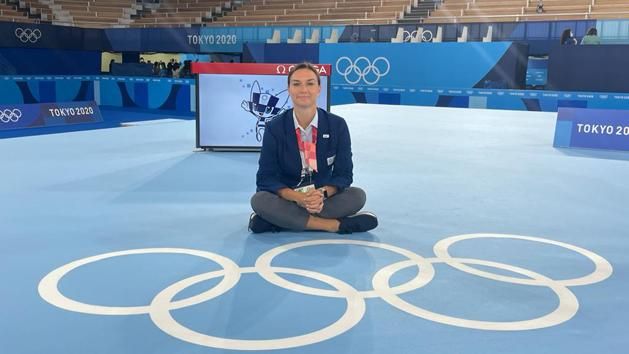
The international federation ranked the judges based on their performance in the 2017, 2018, and 2019 World Championships and World Cups. Also, they took into account the results of the post-Rio de Janeiro Games exam and then announced the 12-person delegation to Tokyo. |
NOT A JOKE: SHE ALSO SCORED HER ATHLETE
In rhythmic gymnastics, after the Rio Olympics, the strict rules were changed not only for the selection of competitors but also for the selection of judges. In Tokyo, unlike the previous Olympic cycles, the international federation has sought to have the best judges in the world decide on Olympic places, regardless of interest. However, this condition created an interesting situation: Erika Deutsch-Lazsányi as a judge of the artistic panel gave points to her athlete, Fanni Pigniczki, who finished in 20th place in Japan.
But how is that possible?
"Following the 2019 World Championship, I was offered to be a judge at the Olympics, which of course was a great honor. Fanni also came very close to qualifying at this 2019 World Championship, so the question immediately arose, ‘What if our athlete gets a quota? Will there be no conflict of interest?' The official reply was received quickly, and it was confirmed that the qualification system for competitors and judges had already been adopted years ago, focusing exclusively on the performance of those involved – without presupposing unprofessionalism or abuse of interests. I am proud to have ended up working without error at the Tokyo Olympics together with my Polish colleague, my friend Hania Narloch."
Surprising results were achieved: seven-time World Championship silver and five-time bronze medalistLinoj Asramof Israel proved to be 0.150 points better than 14-time World Cup gold medalistDina Averinaof Russia. Also, the favorites, the Russians, did not win the all-around final as the Bulgarians surpassed them.
"The Russian fans mainly blamed the scoring of the judges, but there was certainly no error. We were basically told every hour that we were the best judges in the world, and our job was to use the rule book to the best of our knowledge. We felt the weight of our task, we knew that we were responsible for the fate of the athletes, and we carried that burden that comes with it."
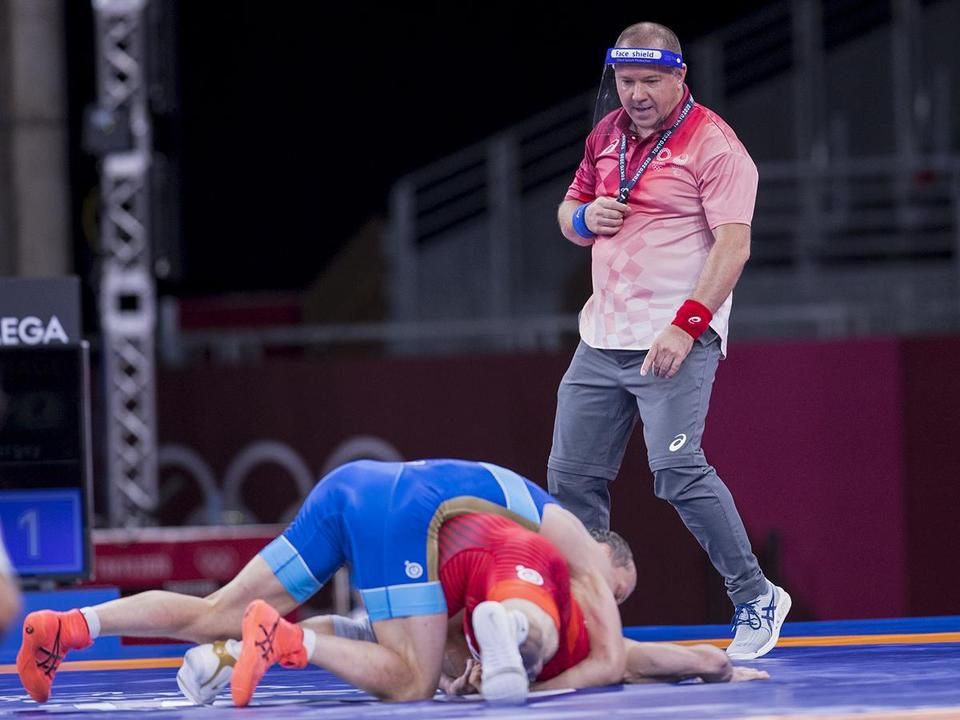
Even before the 2019 World Championships in Nur-Sultan, the pool of wrestling referees who had a chance at Tokyo was narrowed down: only 64 out of 95 Olympic-class candidates were invited to the event in Kazakhstan. European referees were then required to work at the 2020 European Championships in Rome and two qualifying tournaments. Due to the postponement of the Olympics, they had to be present at a continental and world qualifying tournament this year. The authorities of the international federation selected the final 43 for the Olympics at these events. |
SHED TEARS AFTER TAMÁS LŐRINCZ'S WIN
The Hungarian wrestlers performed fantastically in the Japanese capital, celebrating gold and silver medals and two fifth places.For many of us, Tamás Lőrincz caused unforgettable moments in the men's Greco-Roman 77kg event. After four European Championships and one World Championship, and after winning silver at the 2012 London Olympics, he reached the top in the last match of his career by becoming an Olympic champion in Tokyo. Péter Bacsa, executive vice-president of the Hungarian Wrestling Federation (MBSZ), who has also worked as the Technical Delegate, said on the organization's website that the judges celebrated only two athletes by standing up and applauding: heavyweight Greco-Roman wrestler Mijaín López Núñez of Cuba, who made history by winning his fourth Olympic title, and Tamás Lőrincz.
Hungarian referee Szabolcs Pál, who appeared at the most prestigious multisport event for the first time in his life, confirmed this information.
"It was really touching to see his success; I manfully admit that I cried. Not only me but also my colleague Edit Dózsa, who represents Italy. The judges also discuss the events of the day with each other and congratulate the other if the competitor of his/her country wins. This time it was no different, either," said Szabolcs Pál.
Tamás Lőrincz won his first European Championship in Moscow in 2006, and in the final, he defeated Sergey Kovalenko of Russia, who was also in Tokyo as a referee. According to the chairman of the MBSZ Judiciary Committee, "It would have been really sensational if he had been the referee for Thomas' final!"
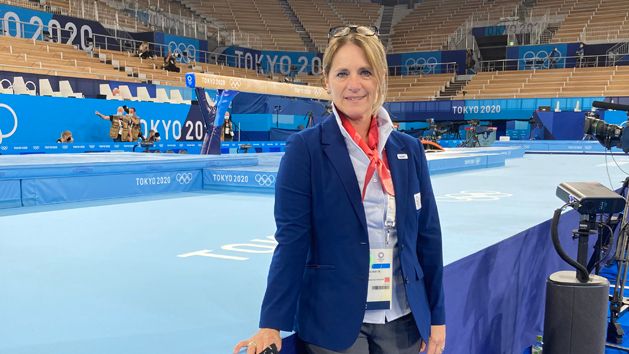
The judges' work is also evaluated throughout the four-year Olympic cycle. Only professionals who fall into the so-called excellent category were allowed to travel to Tokyo, i.e., they consistently achieved performance scores of between ninety and one hundred percent. As usual, two judges gave difficulty points per apparatus, and five were responsible for the technical evaluation. |
IT IS UNDERSTANDABLE WHY SIMONE BILES DECIDED WHAT SHE DECIDED...
Zsuzsanna Katalin Kalmár, the former head coach of the Hungarian women's gymnastics team, was already a judge at the London Olympics in 2012. She admits that because of the infection prevention protocol ordered for the pandemic, the atmosphere of the current event was very different from that of nine years ago. However, apart from the lack of spectators and strict rules, the professional, who was an excellent 50-time national team gymnast, had a good time. In 1979, the World Championship was held in Tokyo, where she finished third on uneven bars. One Japanese man became a fan of hers and now, 42 years later, they met again.
"He often sent origamis, and we've sent each other letters for many years. Then we lost contact for a while. But when Facebook became popular, he got in touch with me again. He found out I was going to be in Tokyo and asked if we'd meet. We got to meet in the lobby, he was very nervous, he didn't speak English well, but overall, I'm glad to have seen him once after forty-two years."
The entire world press was concerned by the news that Simone Biles, the 19-time World champion gymnast who won four gold medals in Rio, withdrew from Tokyo due to mental health issues.
"Her decision is perfectly understandable professionally," Kalmár says. It wasn't about depression or psychological breakdown. She had a mental problem that is very dangerous: during one of her jumps, she spoiled the planned movement and was quite confused. Everyone expects a lot from her, and she does the difficult elements that even just a few men do, so she has to take special care of herself. It's so serious that it could kill her. Now, she has to go back to the basics, and little by little, even with the help of a sports psychologist, she has to rebuild herself."
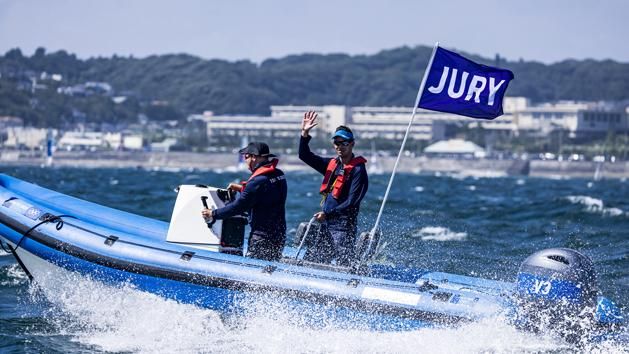
They are particularly careful to ensure that roughly the same number of male and female judges are given the opportunity at the Olympics. All this in such a way that the number of delegates is fairly the same by age and geographical location. Out of three hundred and thirty international judges 29 (from 25 countries) were selected for Tokyo based on their performance in world competitions. |
THE COLLEGE DORM FEELING IS BACK
Bence Böröcz got a taste of what it's like to be a judge in sailing at the 2014 Nanjing Youth Olympics and the 2016 Rio de Janeiro Paralympics. He considers it a great recognition that he could be in the Japanese capital as he was chosen from a landlocked country.
He also said that the infection prevention regulations adopted due to the coronavirus pandemic have caused quite surreal situations:
"We have attended three video conferences since the end of April to prepare perfectly for the protocol used in Tokyo. However, it was still surprising how limited our options were: we could only move between the hotel and the port all the time. Thus, the social experiences were strange: we went to each other's rooms, and this reminded me of my college years in dorms, as I experienced almost the same feeling. Not to mention we used Amazon for shopping and Uber Eats for dinner. Interestingly, the harmony within the judges was much stronger than usual."
Tokyo remains a positive experience for Bence Böröcz, and Zsombor Berecz's brilliant performance greatly contributed to this; he won a silver medal in Finn class.
"Unfortunately, I could not go there and experience the joy of success with it, because, at the end of the competitions, we always have to deal with many tasks and long evaluations. However, I will never forget his extremely close finish. It was one of the most exciting moments of the Olympics, it was impossible to know what color of a medal would end up around his neck. I had goosebumps."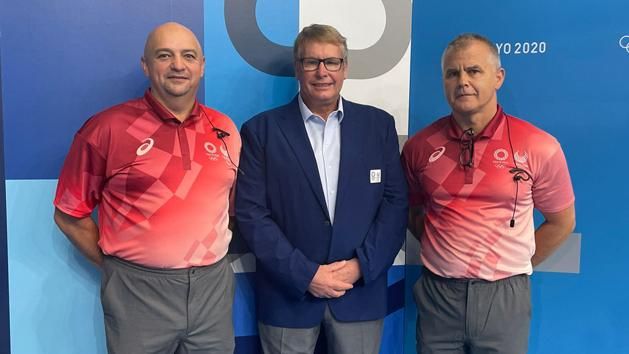
Each country that earned quotas could delegate one referee to Tokyo. However, it was not the domestic but the international federation that decided who would come – only professionals with experience in world competitions could be chosen. |
PERFORMED BEYOND EXPECTATIONS
György Kun whistled at the Olympics for the first time in his life, but before leaving, he was a little skeptical. He only believed that nothing could stop him from his appearance in Tokyo when he arrived at the hotel...
"I started the Games with wanting to be a referee of five or six games, but I ended having eight, which I am very happy with. Of course, I look at what happened as a success, the Olympics is the pinnacle even as a referee, and I am proud to represent my country. I tried to do my best, and I think overall I've done a good job. I am especially pleased that we won bronze medals in both the men's and women's events. In this sport, the Hungarians were the only ones to achieve the feat of both genders standing on the podium."
| The first 3x3 basketball match in the history of the Olympics was led by Hungarian referee Cecília Tóth: the Russians defeated host Japan 21–18. Tóth also got a role in the women's final. Besides, she is the first Hungarian referee to represent Hungary at the Olympics after more than four decades – Mihály Cziffra contributed to the 1980 Moscow Games (at which the women's national team finished fourth). |
|
There was also a Hungarian judge in diving in the person of Nóra Székffy. Ildikó Kelemen, who has participated as a diving judge at several Olympics, told muugras.hu in 2020: “As a member of FINA's diving technical committee, I can no longer be a judge because we supervise the judges' work, select them for world competitions and we also hold the judges certification program. I am very pleased that when I was still "active," I managed to find my successor, Nóra Székffy, who participated in this year's World Championships in Gwangju and was also nominated for the Tokyo Olympics." |
Béla Varga worked in the jury of the triathlon competition. In an article published in March this year, the MOB writes that Varga was allowed to travel to the Japanese capital instead of Byamba Tsagaanbaatar (Mongolia) – the Mongolian renounced the opportunity due to his role in the Paralympics. |
TOKYO 2020, THE HUNGARIAN IF OFFICIALS
3x3 basketball:Cecília Tóth (International Technical Official)
Wrestling:Péter Bacsa (Technical Delegate), Pál Szabolcs (Referee)
Judo:Annamária Havasiné Fridrich (Referee), Imre Csősz (International Technical Official)
Rowing:Éva Szántó (Technical Delegate)
Canoeing:Mónika Weixl (International Technical Official)
Cycling:Csilla Tam (International Technical Official)
Handball:Balázs Soós (International Technical Official)
Diving:Nóra Székffy (Referee)
Modern pentathlon:Ágnes Kulcsár (Technical Delegate), Tamás Varga (Technical Delegate)
Rhythmic gymnastics:Erika Deutsch-Lazsányi (Judge)
Gymnastics:Zsuzsanna Katalin Kalmár (Judge)
Triathlon:Gergely Márkus (Technical Delegate), Béla Varga (Jury)
Sailing:Bence Böröcz (Jury), Benedek Fluck (Race Officer)
Fencing:András Szetey (International Technical Official)
Water polo:György Kun (International Technical Official)
Based on the MOB team book
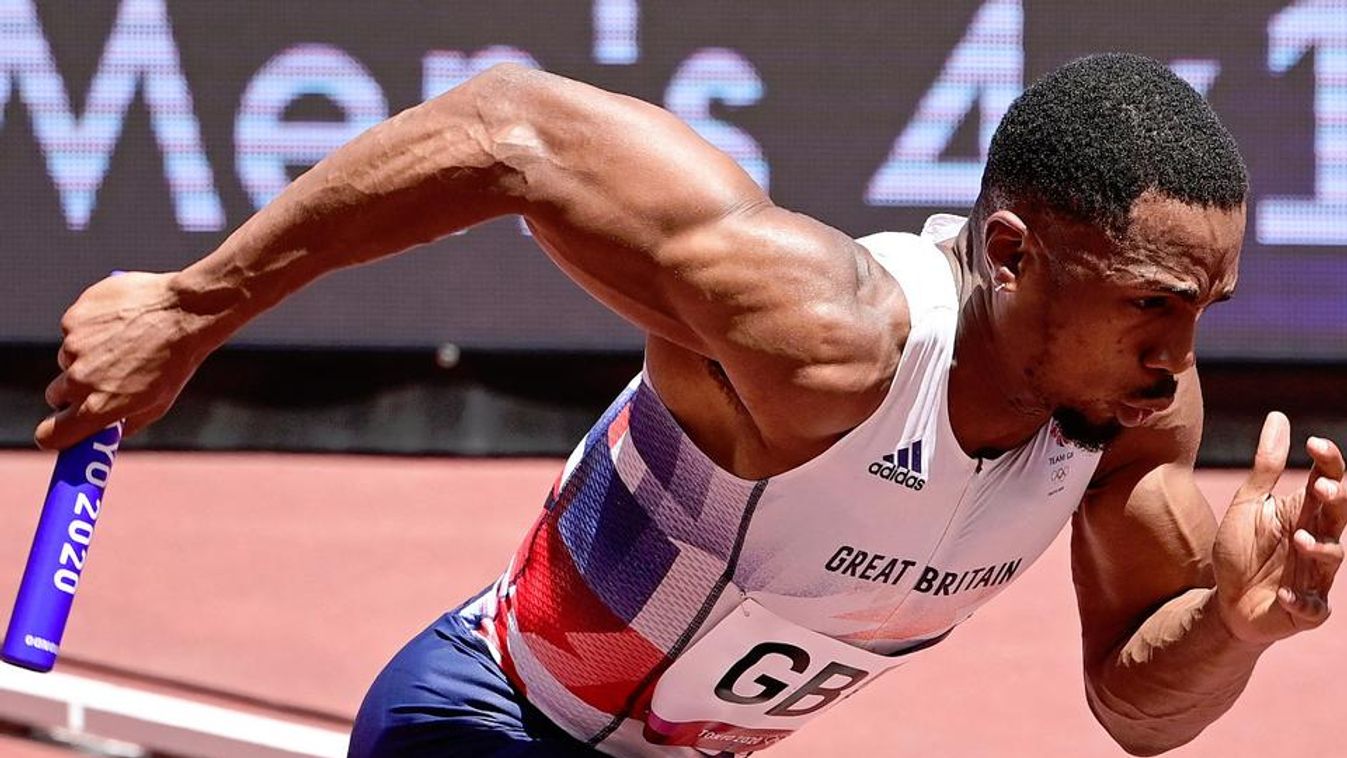
Atlétika: huszonkét hónapra büntették a brit sprintert

Meghalt a Harry Potter-filmek sztárja

Magyar Péter bevallotta, hogy loptak

Vilmos herceg elhagyta a rákbeteg Katalin hercegnét

Oroszország válaszolt az amerikai ukrán segélycsomagra

3 csillagjegy kapcsolata el van átkozva, ők még idén szakíthatnak!

Ennél az agyzsibbasztó szellemi igénytelenségnél még Magyar Péter is jobb – ez a helyzet, sajnálom

Itt a drámai bejelentés: újabb pusztító fegyvereket kap Ukrajna, kitörhet a világháború

Megdöbbensz, ezért kérik el a személyidet ha az Aldiban vásárolsz

Férfi kézi Ek: megfogyatkozva is harcba száll a Fradi a döntőért

Hanga Ádám: Nagy valószínűséggel vége az idényemnek

Nyíregyháza–Vasas rangadó: a kapus is rúghat tizenegyest


